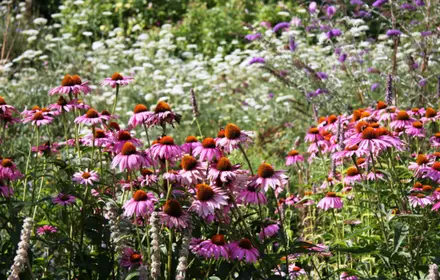Prepare Your Garden for Winter: Soil Preparation

As the vibrant colors of autumn fade away and the days grow shorter, it's time to turn our attention to preparing our gardens for the harsh winter ahead. While winter may seem like a time of dormancy for your garden, proper soil preparation is essential to ensure your plants survive the cold and come back strong in the spring. In this blog, we'll discuss the importance of soil preparation and provide some tips to help you get your garden ready for winter.
Why Soil Preparation Matters
Soil preparation is a crucial step in maintaining a healthy garden throughout the year. Here's why it matters, especially as winter approaches:
1. Root Protection
During winter, the soil can freeze and expand, potentially damaging plant roots. Well-prepared soil provides better insulation, protecting the delicate root systems of your plants from extreme temperature fluctuations.
2. Nutrient Retention
Properly amended soil can help retain essential nutrients, ensuring that your plants have access to the resources they need even when the ground is frozen. This can make a significant difference in the health and vigor of your garden come spring.
3. Weed Control
A well-prepared garden bed with added mulch can help suppress weed growth during the winter months. This means less work for you in the spring when it's time to start planting again.
4. Improved Drainage
Good soil preparation also involves addressing drainage issues. Well-draining soil prevents water from pooling around plant roots, which can lead to root rot and other problems during the winter.
Tips for Soil Preparation
Now that we've established the importance of soil preparation, let's explore some practical tips to get your garden ready for winter:
1. Clear Out Debris
Start by removing any dead plants, leaves, and weeds from your garden beds. This not only tidies up your garden but also eliminates potential hiding spots for pests and diseases.
2. Add Organic Matter
Incorporate organic matter like compost into your soil. Compost improves soil structure, enhances nutrient content, and encourages beneficial microbial activity. Spread a layer of compost over your garden beds and gently work it into the top few inches of soil.
3. Mulch for Insulation
Apply a layer of mulch over your garden beds after planting any winter crops or protecting tender perennials. Mulch helps regulate soil temperature, prevents weed growth, and conserves moisture.
4. Test and Adjust pH
Take the time to test your soil's pH levels. Many plants prefer slightly acidic to neutral soil, so adjust the pH if necessary using lime or sulfur. This ensures that your plants can access nutrients more effectively.
5. Protect Vulnerable Plants
For plants that are particularly sensitive to cold temperatures, consider adding protective coverings like burlap or frost cloth. This extra layer of insulation can make a big difference in their survival.
6. Clean and Store Garden Tools
Don't forget about your gardening tools. Clean and properly store them to prevent rust and ensure they're in good condition for spring.
Proper soil preparation is a vital part of getting your garden ready for winter. By taking the time to clear debris, add organic matter, and protect vulnerable plants, you can ensure that your garden remains healthy and ready for a vibrant comeback when spring arrives. So, roll up your sleeves, grab your gardening gloves, and invest in your garden's future by preparing the soil for the winter ahead. Your garden will thank you with a beautiful display of life and color when the warmer days return.



